

There are many ways to come to therapy. If you have any questions about which service arrangement best meets your needs, these descriptions may help. They outline the various ways I work with client populations. Within each type of therapy below, the length and frequency of sessions is flexible as suits your situation over time. or may differ from market trends altogether. As a guideline, however, the default model for therapy sessions is to visit once a week for a 50-minute period.
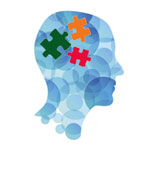 |
Individual TherapyWorking one-on-one with a therapist on a regular basis is the classic formula for psychotherapy. This reliable format offers collaboration and support that powerfully counteract dissatisfying life patterns arising from prior relationship history. It also sets the foundation for a reorientation of the self into greater alignment with meaning, core values, and higher aspirations. In quality psychotherapy individuals often experience clear increases in personal choice and ability, leading to more direct resolution of needs and more creative expression of self in the world. |
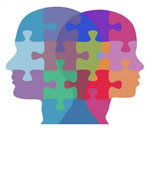 |
Couples TherapyPartners share the therapeutic session, seeking mutual benefit for their intimate relationship. Reasons for seeking couples therapy range from proactive shared interest in improved communication to more disruptive and upsetting experiences, such as infidelity and commitment distress. In all cases, it typically helps couples gain clarity to come to therapy and collaborate with a trained third party, who is outside the prevailing patterns in the couple. |
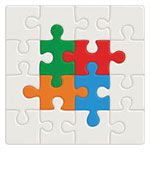 |
Family TherapyFamily therapy is a powerful choice for gaining deep clarity into the emerging needs within the family and for shedding wider light on stubborn family obstacles. Family members attend therapy together and gain the natural benefits of increased family cohesion and interpersonal connection that arise from a supportive environment of sharing and listening. It often helps families a great deal to set aside a designated time and place outside the home and its routine for tracking family evolution and responding collectively to everyone's basic needs based on sensible assessments. |
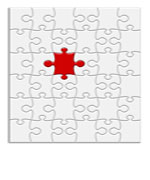 |
Teen TherapyTeen therapy is for teenagers, facing the universal challenges of adolescence. In this age range, there is a natural and developmentally important first reckoning with parental influence, and frequently a deep drive to individuate and attempt autonomy. Therapy is often especially helpful in this situation for sustaining adult support and guidance outside the family unit. From my work at a clinic that serves this client population and a long history of successful tutoring with middle and high school students, I know that teenagers have a lot on their minds, and a cautious longing to express themselves as part of a major self-discovery process. |
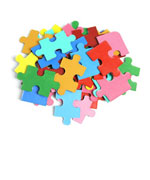 |
Child TherapyChild therapy is when a legal minor comes for regular individual sessions. There are various reasons for this arrangement, but they all lead somewhere similar. Namely, consistent support of the child's normal developmental needs and inclinations fosters a natural resolution of presenting issues. It also affords the child a new experience of self that opens its higher potentials. The natural resilience of children shifts out of turbulence and stuckness and instead resumes its most productive expression. |
Graham Best, Psychotherapist, LMFT #109687
Member of CENTER FOR MINDFUL PSYCHOTHERAPY
Quality Psychotherapy
©2019 Graham Best